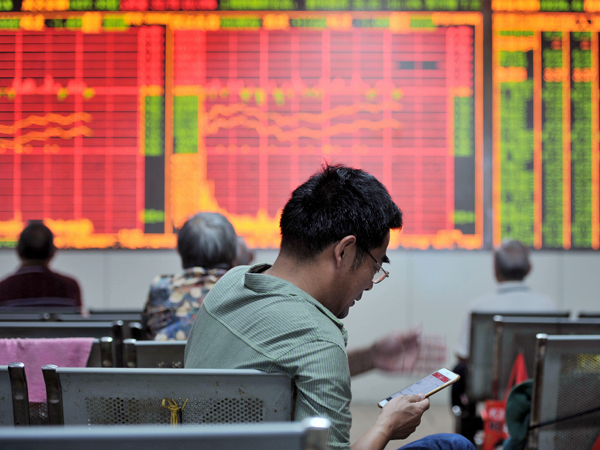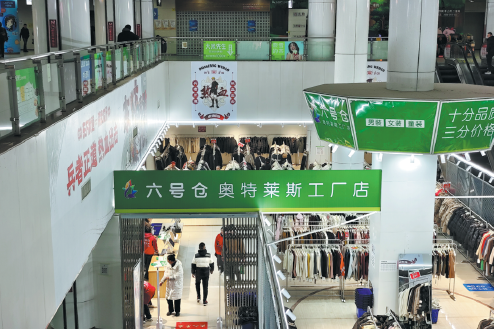Share prices slump on renewed trade spat fears


Chinese stocks tumbled sharply on Wednesday to the lowest level since October 2016 amid renewed fears of an escalation in Sino-US trade tensions.
The benchmark Shanghai Composite Index declined by 2.5 percent to 3,041.44, the biggest drop in two months with more than 200 stocks tumbling by the daily 10 percent trading limit, following a White House statement on Tuesday that renewed the threat of a 25 percent tariff on $50 billion worth of Chinese goods.
The sudden tone change by the US President Donald Trump on trade issues with China caught investors by surprise and rekindled worries about a trade war between the world's two largest economies.
"We believe that trade frictions may be repeated. Affected by this, the risk appetite of investors will continue to fall and funds will continue to flow into safe-haven assets," said Ming Ming, an analyst at CITIC Securities Co Ltd.
The market decline on Wednesday was led by stocks in the sectors of energy and resources, telecommunication equipment, industrial machinery, and internet technology, while gold-related shares surged as investors sought refuge from the market volatility.
The US stock market also declined with both the Dow Jones Industrial and S&P 500 suffering their biggest single-day losses in more than a month on Tuesday following the White House statement. The statement came ahead of the visit of a US delegation led by Commerce Secretary Wilbur Ross to China between June 2 and 4.
In addition to the renewed tariff threat, the Trump administration said that it will announce new restrictions on Chinese investment and enhanced export controls by June 30.
"The tone change may reflect the differences among US policymakers," analysts with Hua Chuang Securities Co Ltd said in a research note.
"The issues between China and the US are becoming increasingly complicated ... The frictions could become a norm and a continuous phenomenon in the bilateral relationship," they warned.
Other factors such as the political instability in Italy and concerns about the country's sovereign debt could also weigh on investor sentiment in China and worldwide, according to equity analysts.
"We are seeing sell-offs across the board as risk aversion is rising amid the jitters in Italy and Trump's new play on trade," Linus Yip, a strategist at First Shanghai Securities, was quoted by Bloomberg as saying.
Domestic factors including ongoing financial deleveraging and the growing credit risks of some companies could also lead to tightened liquidity and will exert pressure on the A-share market in the short term, according to Yang Hai, an analyst at Kaiyuan Securities Co Ltd.



































